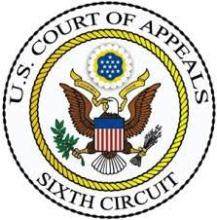
Fast, affordable Internet access for all.

As the Sixth Circuit Court of Appeals considers the FCC's decision to roll back Tennessee and North Carolina anti-muni laws, elected officials opposed to local authority are mounting an assault to head off possible enabling legislation. Their first target is the House of Representatives.
Poison Pens
South Carolina Governor Nikki Haley, North Carolina Attorney General Roy Cooper, Tennessee Attorney General Herbert Slattery, Tennessee Governor Bill Haslam, and Alabama Attorney General Luther Strange all sent letters to the Chairman of the House Energy & Commerce Committee, Fred Upton (R-MI). Their letters express derision at the thought of allowing local communities the ability to make decisions for themselves when it comes to ensuring local businesses and residents have the Internet access they need.
Communities with publicly owned networks such as Chattanooga, Tennessee, and Wilson, North Carolina, have prospered compared to those relying only on the large incumbent cable and telephone companies like Comcast and AT&T. Data suggest access to publicly owned networks contribute to local prosperity. Nevertheless, these elected officials have chosen to support big ISPs rather than their own constituents.
Elected Officials Protecting Campaign Interests
When the FCC released its Opinion and Order scaling back state restrictions in Tennessee and North Carolina, legislators backed by ISP powerhouses took up arms. They introduced bills, wrote editorials, and delivered speeches that put profits of AT&T and Comcast before the rights of Tennesseans and North Carolinians to have fast, affordable, reliable Internet access.
Tennessee Governor Haslam and North Carolina AG Roy Cooper each filed an appeal, to reverse the FCC's decision and keep the laws limiting competition in place. Those appeals have been consolidated and are being considered together in the Sixth Circuit.
According to Stop the Cap!, advocates for better local connectivity have observed the way telecomunications legislation is passed in Tennessee:
Haslam’s critics contend the governor has delegated his own power to protect the interests of large telecommunications corporations operating in his state — companies the critics claimed wrote and lobbied for a state law that established anticompetitive broadband corporate protectionism in Tennessee. Among Haslam’s top campaign contributors are AT&T and Comcast — Tennessee’s two largest telecommunications companies.
Haslam is not the only state leader to speak out who has a vested interest in keeping restrictions in place.
As Stop the Cap! notes, all four of these prominent politicians received considerable campaign contributions from powerhouse ISPs with an interest in limiting competition.
For a quick rundown, we collected some links:
Early Attack
Big incumbent providers write checks to state lawmakers with one hand as they write legislation with the other. This is just one of the many problems with massive monopolies cornering the market in essential services: they have all the access they need to stifle competition. As long as this is the preferred campaign finance method, voters are the only ones who can punish elected officials who put big corporate interests ahead of local needs.
